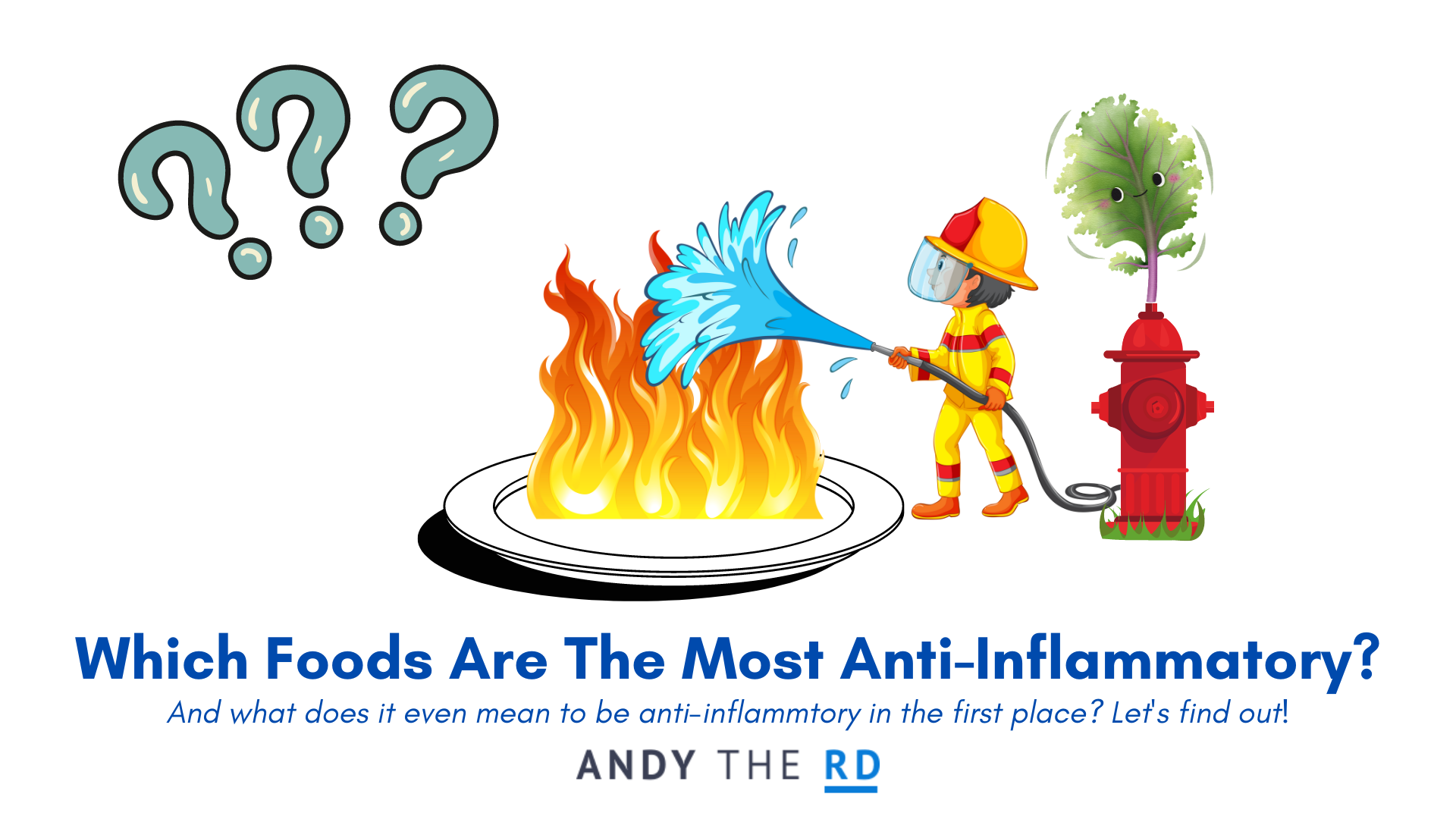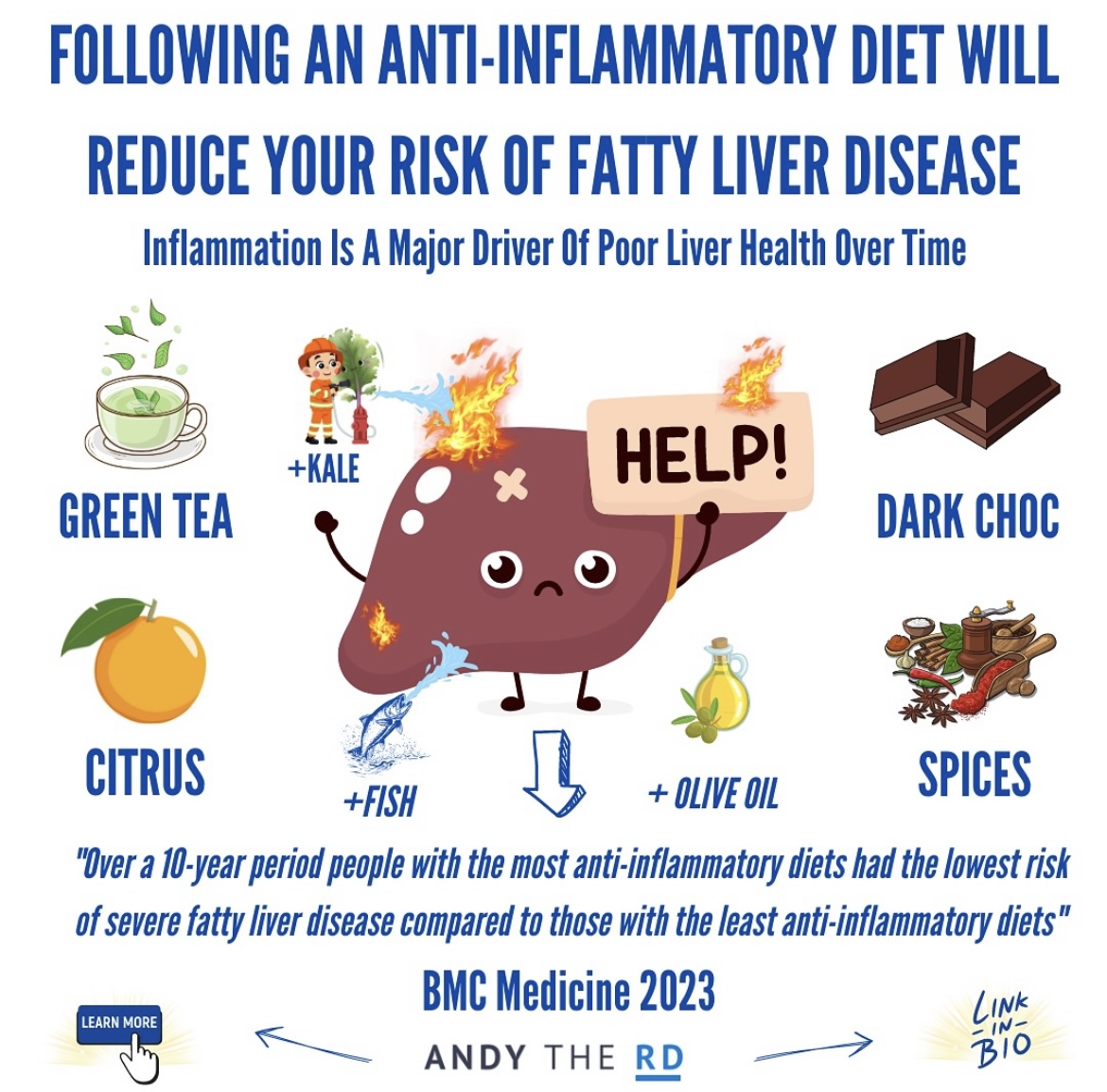Inflammation is a contributor, if not a driver, of many of the most prominent health conditions.
As a result, eating a more anti-inflammatory diet can help with:
- Arthritis
- Anxiety/Depression
- Fatty Liver Disease
- PCOS
Among many others.
This explains why there is a great deal of interest around the foods that are most anti-inflammatory.
But how can we determine what those are?
Fortunately there exists a scoring tool known as DII (Dietary Inflammatory Index) which rates foods based on their anti or pro-inflammatory capabilities.
Before we go any further, let’s figure out how the DII works.
DII – An Anti-Inflammatory Scoring Index
The DII analyzed nearly ~2,000 peer-reviewed research papers which had content pertaining to the effects of a total of foods and food components on six bodily inflammatory markers
The markers considered were:
- IL-1β
- IL-4
- IL-6
- IL-10
- TNF-α
- CRP
From this analysis, an algorithm was created to score individual foods, ingredients and/or nutrients based on their likelihood to contribute positively or negatively to these markers.
In today’s post, I’m going to share with you the items that scored most strongly anti-inflammatory.
Let’s see what I found.
The Most Anti-Inflammatory Diet?
Before I jump in, just a quick note to say that the list I’ve compiled denotes the items with the highest anti-inflammatory potential, it is not an exhaustive list of every single food or nutrient that might be considered anti-inflammatory.
Vitamin D & Omega-3
According to the DII, both Vitamin D and Omega-3 are considered strongly anti-inflammatory.
The only family of foods that contains both in large supply is fatty fish like salmon, sardines, trout, mackerel and herring.
Salmon is also the single richest source of Vitamin B6, a nutrient that has been increasingly associated with anti-stress and anti-anxiety potential.
Turmeric
Turmeric, according to the DII algorithm, is the most anti-inflammatory food component.
The bioactive component of turmeric, known as curcumin, is often sold in supplemental form and has been demonstrated in clinical trials to help with explicitly inflammatory conditions like Ulceraitive Colitis.
Other Herbs & Spices
I’ve written previously on the unique health benefits of utilizing herbs and spices more often, particularly owing to their high anti-inflammatory capabilities.
The options scoring highest on the DII including rosemary, garlic, onion, thyme, oregano, saffron, clove, cinnamon, pepper and ginger.
Sage and parsley are also rich in anti-inflammatory compounds known as flavones – meaning they also merit inclusion in this list.
Beta-Carotene
Beta-Carotene is a Vitamin A pre-cursor that is found in large supply in foods that tend to be either green or orange.
These richest sources are sweet potatoes, carrots, kale, spinach, squash, bell peppers, romaine lettuce and cantaloupe.
Isoflavones
Isoflavones are members of the flavonoid family of antioxidants which are home to some serious health benefits.
They are potent anti-inflammatory compounds found in rich supply in all soy-based foods including tofu, tempeh, soy milk, edamame and soy beans.
Isoflavones are also found to a lesser extent in legumes like lentils, chickpeas and favabeans , which are also home to our next set of anti-inflammatory nutrients.
Magnesium & Fibre
Magnesium and fibre are two of the most sought after dietary components, being increasingly associated with improved health in a wide variety of conditions.
Foods that are high in both include:
- Leafy Greens – Such as artichoke, chard, spinach and kale.
- Nuts/Seeds- Such as pumpkin seeds, walnuts,chia seeds, flax seeds, hemp seeds, almonds, cashews and brazil nuts.
- Legumes – Such as fava beans, lima beans, chickpeas, lentils and kidney beans.
- Whole Grains – Such as brown rice, quinoa and whole wheat pasta.
- Dark Chocolate- Aim for at least 70% to tap into the full benefits.
Various Types Of Tea
Tea is regular associated with the down regulation of inflammatory markers.
While different teas contain different phytochemical compounds, on the whole the six teas listed below are all strong choices.
Caffeinated: Green Tea, Black Tea, Oolong Tea
Hebal: Chamomile, Roobois, Peppermint
Citrus Fruit
Citrus fruit is home to a unique group of anti-inflammatory compounds known as flavonones, another member of the flavonoid family.
Your choices include oranges (including 100% juice!), tangerines, grapefruit, lemon and lime.
Flavonols
Yet another member of the flavonoid family of antioxidants makes the list.
Flavonols are powerfully anti-inflammatory, found in rich supply in cocoa, apples, dark chocolate, asparagus, kale, onions, broccoli and blueberries.
Putting It All Together
The foods, nutrients and ingredients discussed in today’s post are objectively and cumulatively the most likely to reduce the state of inflammation in your body.
I regularly help people efficiently and enjoyably create dietary strategies to optimize their intakes of foods like these for the betterment of their health.
If you feel overwhelmed and require professional assistance in this area, don’t hesitate to reach out to discuss working together.
Andy De Santis RD MPH





